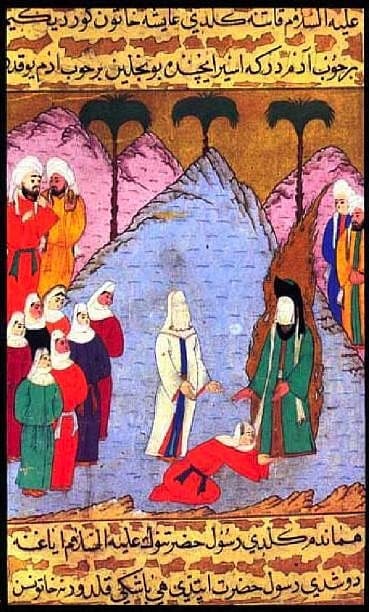Twenty-Five Things To Know About Islam: Part 3: Muhammad’s Conduct; Endless Conflict

8. The Sunna – essentially, the manners and customs of the Arabs in the days of Muhammad – matters to most Muslims as much as the Qur'an. It has even been said that the Sunna could exist without the Qur'an, but not the Qur'an without the essential gloss of the Sunna. And the Sunna is founded on, consists largely of, comes out of, the Hadith and the Sira, that is the life – words, deeds and stories about – Muhammad. He, not the figure of Allah, is the central figure in Islam. Muhammad is mentioned four times as often as Allah in the Qur'an. He is the Model of Conduct – uswa hasana – a phrase used in the Qur'an exactly three times, the other two times both in relation to Abraham. He is, furthermore, the Perfect Man, al-insan al-kamil, and everything he did, as a consequence, was Perfect. Whatever he did was right. Some of what he did is exclusive to him. For one example, he had nine wives and two concubines, but ordinary mortal Muslims are allowed four wives only. However, much of what he did has not been limited to him, but is worthy of emulation.
Little Aisha caught his fancy when she was six, and as the daughter of his good friend, was considered betrothed at that point, but Muhammad contained himself, waiting until she reached the age of nine before consummating, with sexual intercourse, his marriage to her. That might have been thought to be one of the details of his life that ordinary Muslims would not have been allowed to emulate. But it turns out that Muhammad's marriage to his child bride is not regarded by Muslims as morally wrong. It is true that when Muslims are with Westerners who raise the matter of Aisha, in a manner that makes clear their own dismay or horror, Muslims have started to offer various strategies of denial, such as: Aisha wasn't really nine years old, but possibly as old as nineteen (she was on a swing, and playing with her toys, when called away by her mother to greet Muhammad), or she had already reached puberty (at the age of 9!) and that was all that counted, and besides, that was then and this is now, so we must "contextualize" and thereby excuse Muhammad's behavior. But that's all said for the sake of the Infidels. Muslims do not really think his marrying Aisha is to be deplored; their excuses are merely pro forma, to satisfy or silence the Infidels. Muhammad, remember, is for Muslims, and for all time, the Perfect Man and the Model of Conduct.

